
How Zen Technologies is building an IP-driven defence business
"Childlike curiosity", "being blind to the possibility of failure", and the "josh [passion] of wanting to serve the nation" helped Atluri and his co-founders Kishore Dutt Atluri, and Ravi Kumar ride a wave of challenges
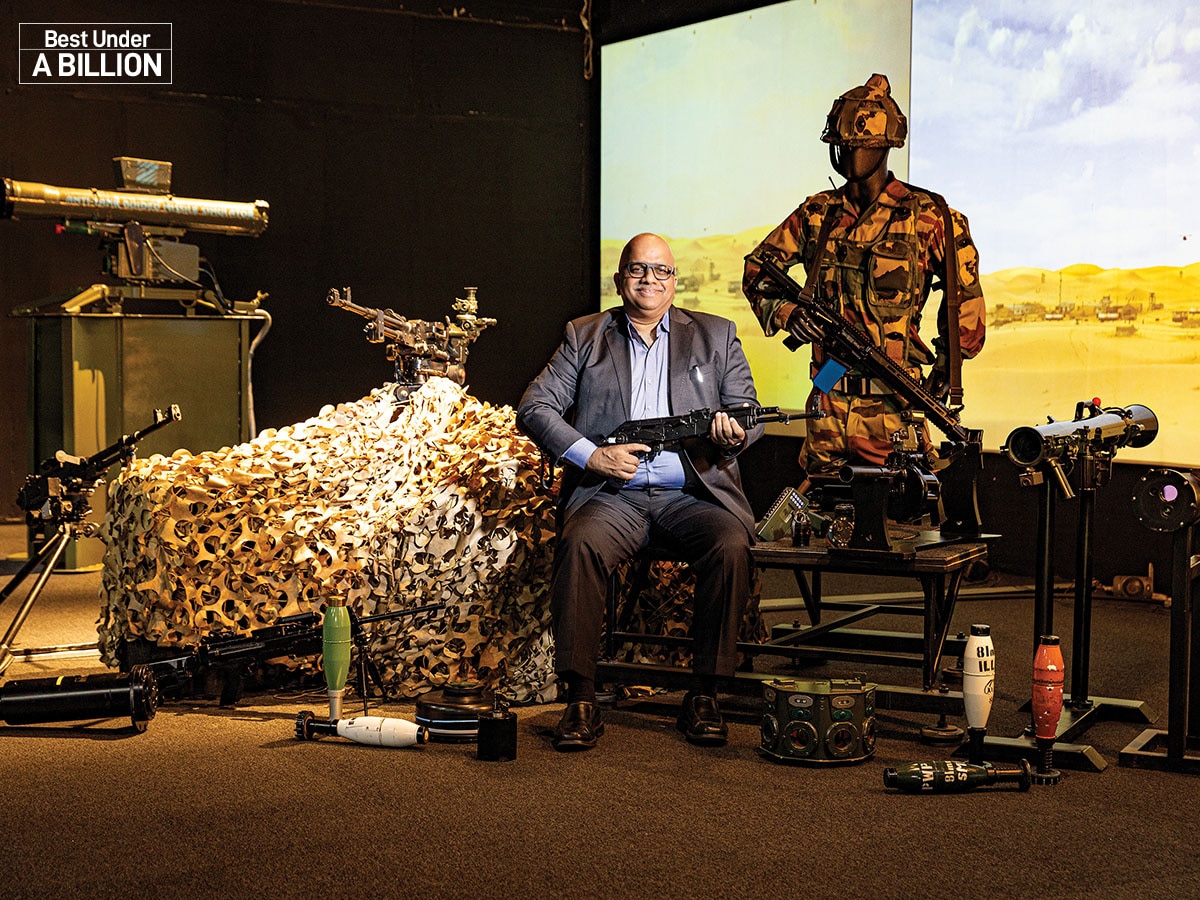 Ashok Atluri, 58, chairman and managing director of Zen Technologies Image: VIkas Chandra Pureti for Forbes India
Ashok Atluri, 58, chairman and managing director of Zen Technologies Image: VIkas Chandra Pureti for Forbes India
How are battles won?”
Ashok Atluri, 58, chairman and managing director of Zen Technologies, turns the tables, and asks me this question during an hour-long interaction.
“Most of the battles are won by well-trained soldiers. We can never a win a war if there are gaps in training but, even if the equipment is older, nothing can beat a well-trained soldier,” Atluri answers.
This is the conviction that led the first-generation entrepreneur to venture into the field of defence simulators over three decades ago. “There were flight simulators, but nobody had thought about military tank simulators,” the PG diploma holder in Applied Computer Science reminisces. “That’s how we got into this in a big way.”
“Childlike curiosity”, “being blind to the possibility of failure”, and the “josh [passion] of wanting to serve the nation” helped Atluri and his co-founders Kishore Dutt Atluri and Ravi Kumar ride a wave of challenges as they tried to break into the market. “The first three years were miserable,” the pioneer explains. With no track record and much difficulty, the founders managed to raise debt from the present-day IDBI Bank to fund the R&D-focussed business in 1996.
(This story appears in the 20 September, 2024 issue of Forbes India. To visit our Archives, click here.)




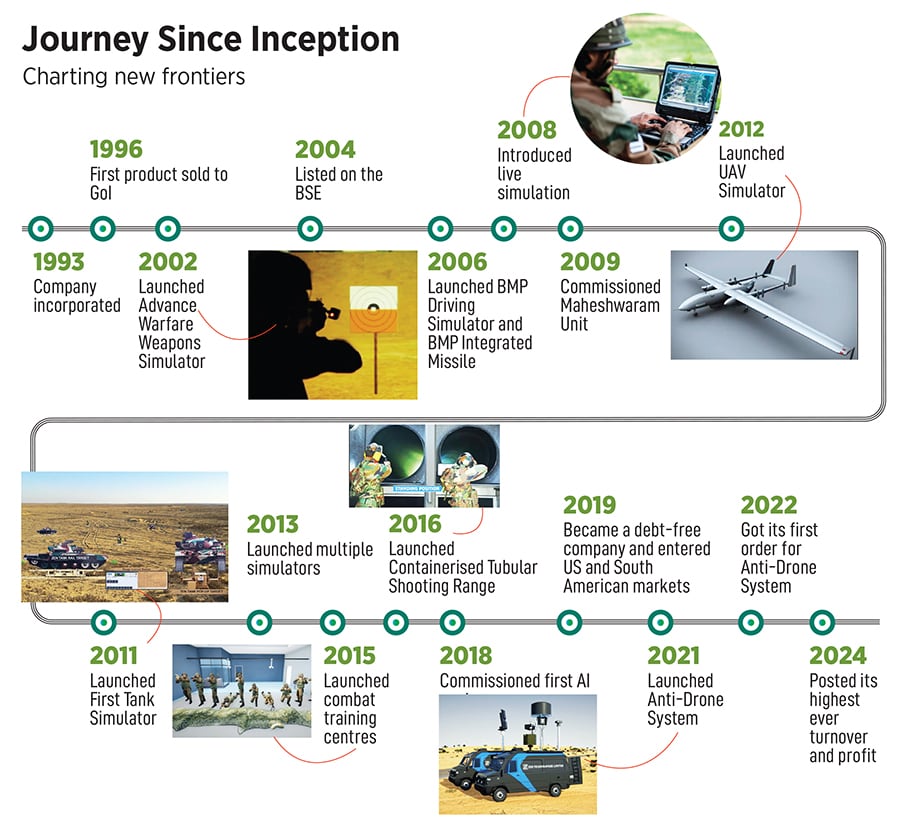
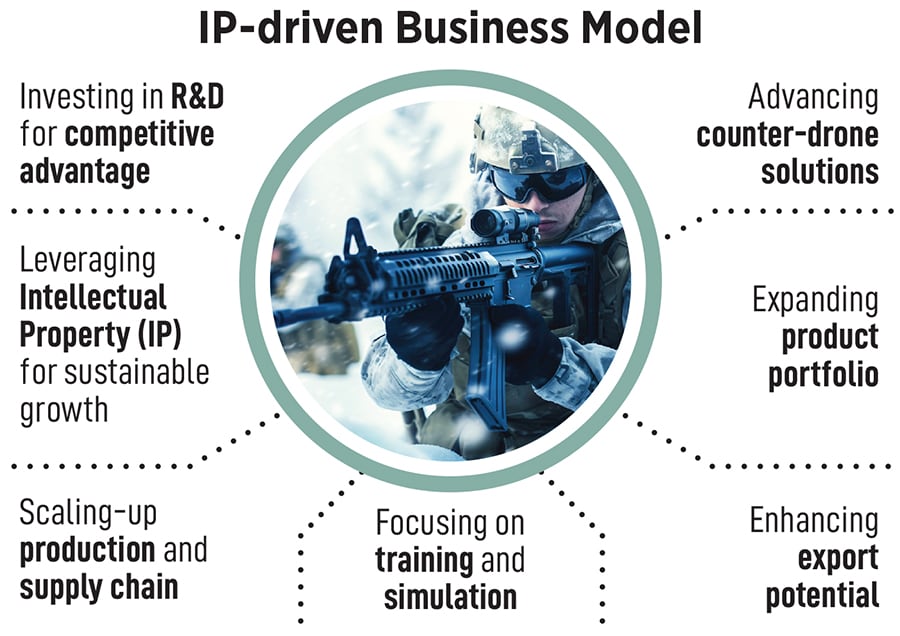
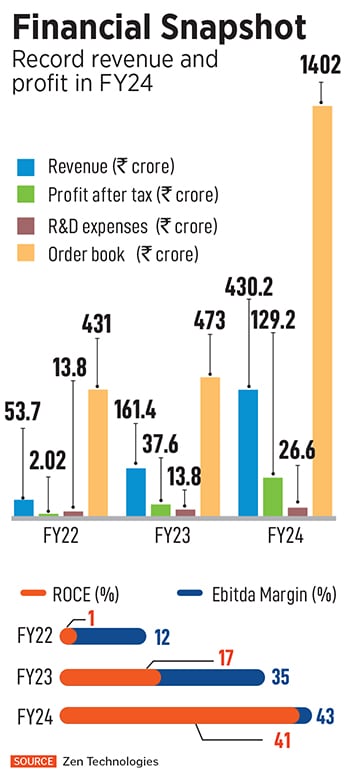 “Our products are characterised by a bill of materials that contribute around 25 to 40 percent of the final product cost… highlighting the intrinsic value of our IP,” the chairman notes. This also provides a cushion for profit margins if the cost of components rises.
“Our products are characterised by a bill of materials that contribute around 25 to 40 percent of the final product cost… highlighting the intrinsic value of our IP,” the chairman notes. This also provides a cushion for profit margins if the cost of components rises.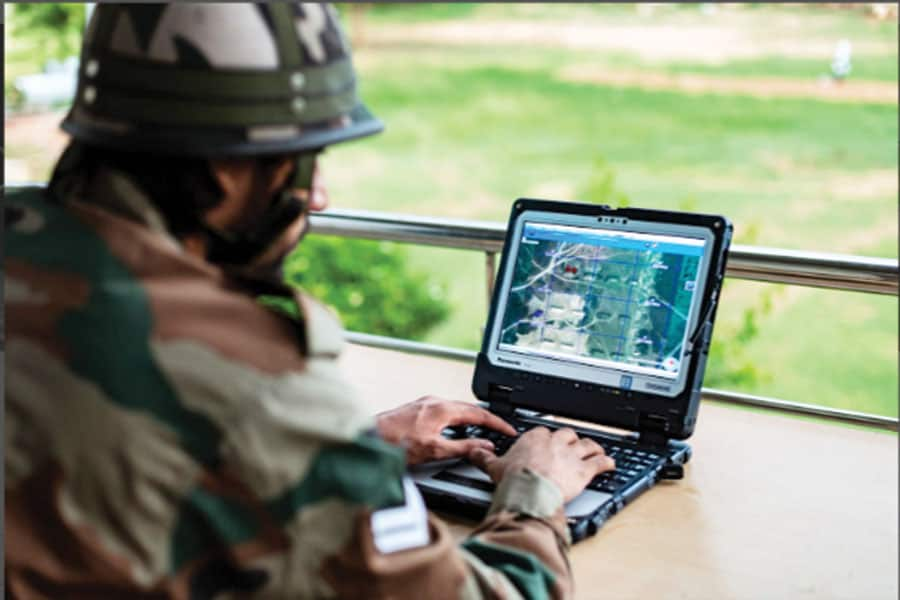
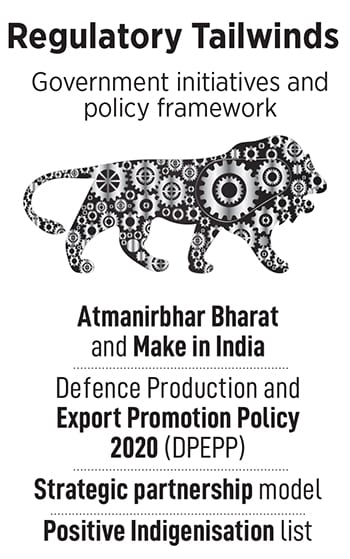 Kotak Institutional Equities points out that the current profitability of most defence companies seems to be on the higher side, and they expect the competitive intensity to rise with the entry of private sector players. “We would note that lower profitability assumptions will imply much higher implied revenues, which may not be feasible in the context of the market opportunity,” its analysts say in a report.
Kotak Institutional Equities points out that the current profitability of most defence companies seems to be on the higher side, and they expect the competitive intensity to rise with the entry of private sector players. “We would note that lower profitability assumptions will imply much higher implied revenues, which may not be feasible in the context of the market opportunity,” its analysts say in a report.














